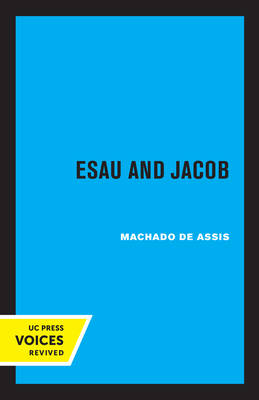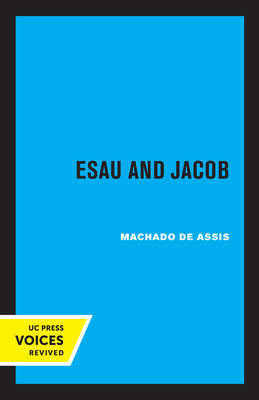
- Afhalen na 1 uur in een winkel met voorraad
- Gratis thuislevering in België vanaf € 30
- Ruim aanbod met 7 miljoen producten
- Afhalen na 1 uur in een winkel met voorraad
- Gratis thuislevering in België vanaf € 30
- Ruim aanbod met 7 miljoen producten
Zoeken
Omschrijving
Esau and Jacob is a novel by Machado de Assis that presents a richly layered narrative set in 19th-century Rio de Janeiro, blending comedy, allegory, and social commentary. The story centers around a pair of identical twins, Pedro and Paulo, who embody the political divide in Brazil between conservatives and liberals. Despite their physical similarities, their differing ideologies and the constant conflict between them represent the tension within Brazilian society during a pivotal historical period. The novel explores the formation of the Brazilian Republic, illustrating how historical events influence the lives of individuals, all while maintaining a subtle yet biting humor. Through the perspective of Ayres, an ex-diplomat, Assis weaves complex themes of destiny, identity, and societal roles, giving the narrative a timeless quality. The title itself, Esau and Jacob, connects to the Biblical story of sibling rivalry, which mirrors the ongoing conflict between Brazil's political factions, though the twins' quarrel lacks the grand theological significance of the Biblical reference. Assis cleverly infuses the novel with symbolism, using the title, epigraph, and characters to comment on the nature of Brazilian society at the time. The novel begins with the prophecy of a fortuneteller who predicts great things for the twins, but their destiny is paradoxically shaped by their inability to reconcile their differences. The narrative is filled with historical references, such as the fall of the monarchy and the rise of the Republic, while also providing a critique of the political, religious, and social structures in Brazil. The character Ayres, who narrates the story, provides an intellectual lens through which the reader can interpret the unfolding events, often making the reader an active participant in deciphering the deeper meanings of the text. Esau and Jacob is both a portrait of Brazil's historical moment and a philosophical reflection on human nature, destiny, and the cyclical nature of societal change. Through its blend of satire, wit, and allegorical depth, it remains a masterpiece of Latin American literature. This title is part of UC Press's Voices Revived program, which commemorates University of California Press's mission to seek out and cultivate the brightest minds and give them voice, reach, and impact. Drawing on a backlist dating to 1893, Voices Revived makes high-quality, peer-reviewed scholarship accessible once again using print-on-demand technology. This title was originally published in 1965.
Specificaties
Betrokkenen
- Auteur(s):
- Uitgeverij:
Inhoud
- Aantal bladzijden:
- 308
- Taal:
- Engels
Eigenschappen
- Productcode (EAN):
- 9780520376380
- Verschijningsdatum:
- 23/09/2022
- Uitvoering:
- Paperback
- Formaat:
- Trade paperback (VS)
- Afmetingen:
- 140 mm x 216 mm
- Gewicht:
- 390 g

Alleen bij Standaard Boekhandel
+ 169 punten op je klantenkaart van Standaard Boekhandel
Beoordelingen
We publiceren alleen reviews die voldoen aan de voorwaarden voor reviews. Bekijk onze voorwaarden voor reviews.











